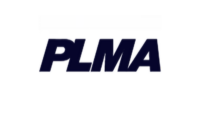“A lot of people during the recession reluctantly bought private-label, got home and stated, 'This is not bad at all. Why am I paying more money?’” says John Stanton, Ph.D., a food marketing professor at St. Joseph's University in Philadelphia. “Consumers aren’t demanding the best. They are demanding good.”
Store-brand supermarket sales in the 12-month period ending Aug. 31 hit $111.6 billion, according to the Nielsen Co., a New York-based media and marketing information concern. The total was up 18.5% from 2009. National-brand sales grew 8% during the same span, Nielsen reports.
Several trends contribute to the increased popularity of grocery products that used to be called “generic”:
- Many consumers who turned to more frugal spending habits during the recession stayed in the neighborhood.
- Food prices have risen faster than wages. At-home food expenses advanced by 14.5% from 2008 through 2012, U.S. Labor Department statistics show. Average incomes increased 9.9% over the same period, government data indicate.
- Grocery retailers are splurging to generate better house-branded products that cost less than branded items.
“We have our own quality-control lab and put a lot of effort into developing and improve the private brand products we sell,” states Dennis Curtin, spokesman for Weis Markets Inc., based in Sunbury, Pa. Weis operates 10 stores in Pennsylvania’s Lackawanna and Luzerne counties.
“The quality has improved in the store brand so much that it’s like national-brand quality,” says Rocco Riccardo, president of Riccardo’s Market, a ShurSave affiliate in Dunmore, Pa.
Source: http:thetimes-tribune.com






